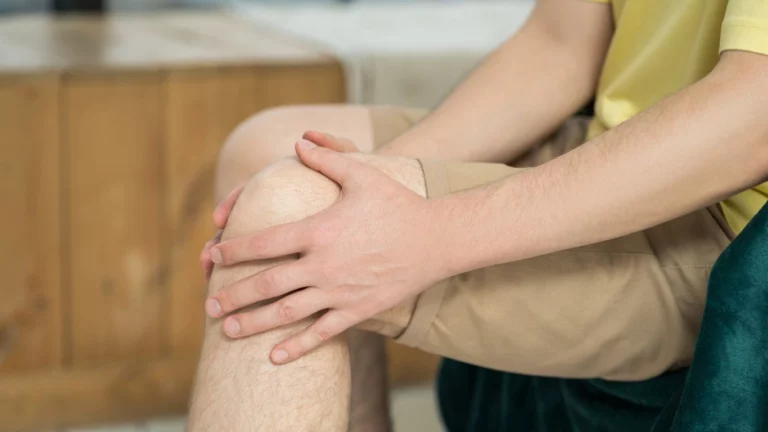When to Use a Nebulizer for Asthma – A Complete Guide
Wondering when to use a nebulizer for asthma? Let’s break it down! If you or someone you know has asthma, you’ve probably heard of nebulizers and inhalers as part of the treatment. But figuring out when exactly to use a nebulizer can be confusing. Should it be used every time an asthma attack happens, or just when symptoms get worse? How does it even work? Don’t worry! We’ll clear things up for you in this guide.
Before we dive into when to use it, let’s quickly go over what a nebulizer is. Essentially, a nebulizer is a machine that turns liquid asthma medication into a fine mist, making it easier for you to breathe in. Unlike inhalers, which require you to puff in the medication, nebulizers allow you to breathe it in slowly and continuously. This is especially helpful for young kids, older adults, or anyone who has trouble using an inhaler properly.

When Should You Use a Nebulizer for Asthma?
A nebulizer is typically used when someone has moderate to severe asthma symptoms, or during an asthma attack. It can be used in the following situations:
1. During an Asthma Attack or Flare-Up
If you’re experiencing a sudden worsening of asthma symptoms like shortness of breath, wheezing, or tightness in your chest, using a nebulizer can help open up the airways. This helps you breathe more easily, providing relief during those critical moments.
2. When You’re Not Responding to an Inhaler
Inhalers are often the first go-to for asthma relief, but sometimes they just aren’t enough. If you’ve used your inhaler as prescribed, but symptoms are still sticking around or getting worse, a nebulizer can provide additional medication to help.
3. When Your Doctor Prescribes It for Daily Maintenance
For some people, a nebulizer is part of a long-term asthma management plan. If your doctor has prescribed a nebulizer for daily use, you should follow their instructions. This could help manage symptoms on a day-to-day basis, reducing the chances of an asthma attack in the first place.

4. For Severe Asthma Symptoms in Children
Kids with asthma might have trouble using an inhaler correctly, especially when they’re younger. In these cases, a nebulizer is a great alternative since it delivers medication in a more controlled and steady stream, which is easier for them to handle.
5. When You Need More Medication
In some cases, doctors might recommend nebulizer treatments to deliver stronger medications than those in inhalers. This is often the case for people with more severe asthma or those whose symptoms aren’t well controlled with standard inhaler use.
How Does a Nebulizer Work?
A nebulizer is simple to use. It has a machine that generates a mist from the liquid medication you put inside. You breathe in the mist through a mouthpiece or mask. The whole process usually takes around 10-15 minutes, depending on the medication. Some nebulizers are portable, while others need to be plugged into a power outlet.
Nebulizer vs. Inhaler: Which One is Better for You?
Both nebulizers and inhalers can be effective in treating asthma, but they work differently. Inhalers are portable and easier to use in a pinch, but they require the user to have good technique. Nebulizers, on the other hand, might take longer but are often preferred for people who have difficulty using inhalers or need a more thorough treatment.
When to Use a Nebulizer vs. When to Use an Inhaler
If you’re unsure whether you should use your inhaler or your nebulizer, here’s a general rule of thumb:
- Use a nebulizer if you’re having trouble breathing, your symptoms are severe, or you need extra medication. A nebulizer is also a better option for young children who can’t use inhalers properly.
- Use an inhaler for quick relief when you feel your asthma symptoms coming on or if you’re in a situation where you need something fast and easy to carry around.
Are Nebulizers Always Effective?
Nebulizers are generally effective for treating asthma, but they aren’t a cure. They can help reduce the symptoms of asthma, making it easier to breathe, but they don’t prevent future attacks. For long-term asthma control, a combination of medications, lifestyle adjustments, and regular check-ups with your healthcare provider is necessary.
Tips for Using a Nebulizer Correctly
- Clean Your Nebulizer Regularly: Bacteria can build up in the tubing and mouthpiece if not cleaned. Make sure to follow the manufacturer’s instructions for cleaning after every use.
- Use the Right Medication: Always use the medication prescribed by your doctor. Nebulizers can deliver a variety of medications, so using the right one is crucial.
- Stay Relaxed: Try to sit in a relaxed position while using the nebulizer. This will help you breathe in the mist more effectively.
- Keep Track of Your Treatments: If you’re using a nebulizer as part of a treatment plan, keep track of how often you use it and note any changes in your symptoms. This info can help your doctor adjust your treatment if needed.
Conclusion: The Right Time to Use a Nebulizer for Asthma
Using a nebulizer can be a game-changer if you or someone you know struggles with asthma. It’s especially useful when symptoms are severe, when you’re not responding well to inhalers, or for kids who can’t use inhalers properly. Always follow your doctor’s recommendations, and don’t hesitate to use a nebulizer if your asthma symptoms are worsening.
Appendices
FAQs
- Can I use a nebulizer instead of an inhaler for asthma?
Yes, you can use a nebulizer if your doctor recommends it. It’s a good alternative for those who need more medication or have difficulty using an inhaler. - How often should I use my nebulizer?
This depends on your doctor’s recommendations. Some people use it daily, while others only during an asthma flare-up. - Is it safe to use a nebulizer for children?
Yes, nebulizers are safe for children and are often recommended for younger kids who have trouble using inhalers. - How long does a nebulizer treatment take?
A nebulizer treatment typically lasts between 10-15 minutes. - Can I use a nebulizer for other respiratory conditions?
Nebulizers can be used for a variety of respiratory conditions, not just asthma. Talk to your doctor about its use for other conditions like COPD or bronchitis.
References
- Asthma and Allergy Foundation of America. (2023). Asthma Management and Treatment. AAFA Website
- National Institutes of Health. (2024). Nebulizer Use for Asthma. NIH Website
- Mayo Clinic. (2024). Asthma: Symptoms and Treatment Options. Mayo Clinic Website
Disclaimer
The information provided in this article is for educational purposes only and should not be considered a substitute for professional medical advice. Always consult with a healthcare provider for personalized advice and treatment options related to asthma or any other medical condition.

Bianca Nala is a compassionate Nurse Practitioner with a strong background in primary and respiratory care. As a health writer for Healthusias.com, she combines her clinical expertise with a talent for clear, relatable storytelling to help readers better understand their health. Bianca focuses on topics like asthma, COPD, chronic cough, and overall lung health, aiming to simplify complex medical topics without losing accuracy. Whether she’s treating patients or writing articles, Bianca is driven by a single goal: making quality healthcare knowledge accessible to everyone.







